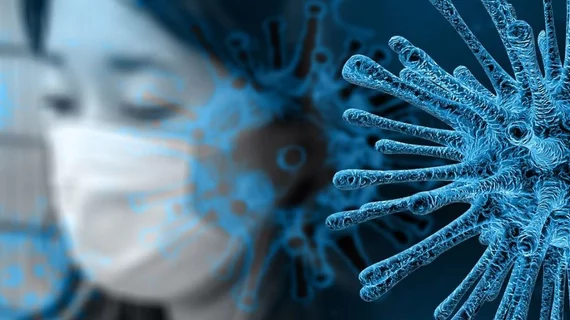Chest CT should be ‘primary’ screening tool to diagnose coronavirus, experts say
A new case study of more than 1,000 individuals suggests that chest CT should be deployed as the primary screening tool to diagnose coronavirus.
That research—published Feb. 26 in Radiology—determined that the imaging modality outperformed traditional lab testing for identifying COVID-19. The news comes as the virus continues to spread across the globe, pushing into Europe, Latin America and the Middle East, and prompting the United States to prepare for its own outbreak.
To date, the number of coronavirus cases stands at 81,398 worldwide, with 2,771 deaths.
"Early diagnosis of COVID-19 is crucial for disease treatment and control,” Tao Ai, with Tongji Hospital in Wuhan, China, said in a statement. “Compared to RT-PCR (reverse-transcription polymerase chain reaction), chest CT imaging may be a more reliable, practical and rapid method to diagnose and assess COVID-19, especially in the epidemic area.”
These results also align with a similar study, published last week in Radiology, which found that chest CT was superior to RT-PCR at identifying the virus in a group of 51 patients. Ai and fellow researchers expressed concern that lab testing’s low sensitivity may miss a large number of infected patients, potentially sending them back out into the public.
In their research published Wednesday, Ai and colleagues reported on 1,014 patients who underwent both chest CT and RT-PCR testing between January and Feb. 6. They found that 601 patients had positive RT-PCR test results, while 888 had positive chest CTs. Imaging produced a 97% sensitivity for identifying COVID-19, based on positive lab results. And in individuals with negative test findings, 75% (308 of 413 patients) yielded positive chest scan findings. Ai noted that of that total group, 48% were categorized as “highly likely cases,” with 33% considered “probable” cases.
"About 81% of the patients with negative RT-PCR results but positive chest CT scans were reclassified as highly likely or probable cases with COVID-19, by the comprehensive analysis of clinical symptoms, typical CT manifestations and dynamic CT follow-ups," the authors wrote.
Experts have called on radiologists to step-up in the fight against the virus, maintaining that they are central to diagnosing COVID-19. And a study published Feb. 24 found that chest CT could identify signs of the condition in patients before they even expressed clinical symptoms.

